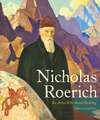Portrait of a Russian Province: Economy, Society, and Civilization in Nineteenth-Century Nizhnii Novgorod: Russian and East European Studies
Autor Catherine Evtuhoven Limba Engleză Paperback – 11 noi 2011
Several stark premises have long prevailed in our approach to Russian history. It was commonly assumed that Russia had always labored under a highly centralized and autocratic imperial state. The responsibility for this lamentable state of affairs was ultimately assigned to the profoundly agrarian character of Russian society. The countryside, home to the overwhelming majority of the nation’s population, was considered a harsh world of cruel landowners and ignorant peasants, and a strong hand was required for such a crude society.
A number of significant conclusions flowed from this understanding. Deep and abiding social divisions obstructed the evolution of modernity, as experienced “naturally” in other parts of Europe, so there was no Renaissance or Reformation; merely a derivative Enlightenment; and only a distorted capitalism. And since only despotism could contain these volatile social forces, it followed that the 1917 Revolution was an inevitable explosion resulting from these intolerable contradictions—and so too were the blood-soaked realities of the Soviet regime that came after. In short, the sheer immensity of its provincial backwardness could explain almost everything negative about the course of Russian history.
This book undermines these preconceptions. Through her close study of the province of Nizhnii Novgorod in the nineteenth century, Catherine Evtuhov demonstrates how nearly everything we thought we knew about the dynamics of Russian
society was wrong. Instead of peasants ground down by poverty and ignorance, we find skilled farmers, talented artisans and craftsmen, and enterprising tradespeople. Instead of an exclusively centrally administered state, we discover effective and participatory local government. Instead of pervasive ignorance, we are shown a lively cultural scene and an active middle class. Instead of a defining Russian exceptionalism, we find a world recognizable to any historian of nineteenth-century Europe.
Drawing on a wide range of Russian social, environmental, economic, cultural, and intellectual history, and synthesizing it with deep archival research of the Nizhnii Novgorod province, Evtuhov overturns a simplistic view of the Russian past. Rooted in, but going well beyond, provincial affairs, her book challenges us with an entirely new perspective on Russia’s historical trajectory.
A number of significant conclusions flowed from this understanding. Deep and abiding social divisions obstructed the evolution of modernity, as experienced “naturally” in other parts of Europe, so there was no Renaissance or Reformation; merely a derivative Enlightenment; and only a distorted capitalism. And since only despotism could contain these volatile social forces, it followed that the 1917 Revolution was an inevitable explosion resulting from these intolerable contradictions—and so too were the blood-soaked realities of the Soviet regime that came after. In short, the sheer immensity of its provincial backwardness could explain almost everything negative about the course of Russian history.
This book undermines these preconceptions. Through her close study of the province of Nizhnii Novgorod in the nineteenth century, Catherine Evtuhov demonstrates how nearly everything we thought we knew about the dynamics of Russian
society was wrong. Instead of peasants ground down by poverty and ignorance, we find skilled farmers, talented artisans and craftsmen, and enterprising tradespeople. Instead of an exclusively centrally administered state, we discover effective and participatory local government. Instead of pervasive ignorance, we are shown a lively cultural scene and an active middle class. Instead of a defining Russian exceptionalism, we find a world recognizable to any historian of nineteenth-century Europe.
Drawing on a wide range of Russian social, environmental, economic, cultural, and intellectual history, and synthesizing it with deep archival research of the Nizhnii Novgorod province, Evtuhov overturns a simplistic view of the Russian past. Rooted in, but going well beyond, provincial affairs, her book challenges us with an entirely new perspective on Russia’s historical trajectory.
Din seria Russian and East European Studies
-
 Preț: 332.65 lei
Preț: 332.65 lei -
 Preț: 141.48 lei
Preț: 141.48 lei -
 Preț: 428.75 lei
Preț: 428.75 lei - 15%
 Preț: 678.74 lei
Preț: 678.74 lei -
 Preț: 433.53 lei
Preț: 433.53 lei -
 Preț: 238.43 lei
Preț: 238.43 lei -
 Preț: 388.79 lei
Preț: 388.79 lei -
 Preț: 436.25 lei
Preț: 436.25 lei -
 Preț: 295.91 lei
Preț: 295.91 lei -
 Preț: 326.41 lei
Preț: 326.41 lei -
 Preț: 127.24 lei
Preț: 127.24 lei -
 Preț: 123.55 lei
Preț: 123.55 lei -
 Preț: 315.41 lei
Preț: 315.41 lei -
 Preț: 171.58 lei
Preț: 171.58 lei -
 Preț: 485.99 lei
Preț: 485.99 lei - 15%
 Preț: 493.66 lei
Preț: 493.66 lei -
 Preț: 474.45 lei
Preț: 474.45 lei -
 Preț: 391.67 lei
Preț: 391.67 lei -
 Preț: 502.16 lei
Preț: 502.16 lei -
 Preț: 431.62 lei
Preț: 431.62 lei -
 Preț: 113.42 lei
Preț: 113.42 lei -
 Preț: 422.00 lei
Preț: 422.00 lei -
 Preț: 395.54 lei
Preț: 395.54 lei -
 Preț: 179.30 lei
Preț: 179.30 lei -
 Preț: 397.45 lei
Preț: 397.45 lei -
 Preț: 470.60 lei
Preț: 470.60 lei -
 Preț: 363.26 lei
Preț: 363.26 lei -
 Preț: 461.94 lei
Preț: 461.94 lei -
 Preț: 352.86 lei
Preț: 352.86 lei -
 Preț: 272.52 lei
Preț: 272.52 lei -
 Preț: 349.81 lei
Preț: 349.81 lei -
 Preț: 184.58 lei
Preț: 184.58 lei -
 Preț: 317.63 lei
Preț: 317.63 lei -
 Preț: 468.65 lei
Preț: 468.65 lei -
 Preț: 432.57 lei
Preț: 432.57 lei -
 Preț: 182.40 lei
Preț: 182.40 lei -
 Preț: 389.76 lei
Preț: 389.76 lei -
 Preț: 426.63 lei
Preț: 426.63 lei -
 Preț: 465.76 lei
Preț: 465.76 lei -
 Preț: 126.00 lei
Preț: 126.00 lei -
 Preț: 283.50 lei
Preț: 283.50 lei -
 Preț: 403.43 lei
Preț: 403.43 lei - 23%
 Preț: 568.69 lei
Preț: 568.69 lei - 23%
 Preț: 565.89 lei
Preț: 565.89 lei - 23%
 Preț: 556.25 lei
Preț: 556.25 lei -
 Preț: 385.91 lei
Preț: 385.91 lei -
 Preț: 422.97 lei
Preț: 422.97 lei -
 Preț: 385.53 lei
Preț: 385.53 lei -
 Preț: 423.35 lei
Preț: 423.35 lei
Preț: 422.97 lei
Nou
Puncte Express: 634
Preț estimativ în valută:
80.93€ • 84.50$ • 66.98£
80.93€ • 84.50$ • 66.98£
Carte disponibilă
Livrare economică 14-28 martie
Preluare comenzi: 021 569.72.76
Specificații
ISBN-13: 9780822961710
ISBN-10: 0822961717
Pagini: 344
Ilustrații: 26 Illustrations
Dimensiuni: 152 x 235 x 20 mm
Greutate: 0.45 kg
Ediția:1
Editura: University of Pittsburgh Press
Colecția University of Pittsburgh Press
Seria Russian and East European Studies
ISBN-10: 0822961717
Pagini: 344
Ilustrații: 26 Illustrations
Dimensiuni: 152 x 235 x 20 mm
Greutate: 0.45 kg
Ediția:1
Editura: University of Pittsburgh Press
Colecția University of Pittsburgh Press
Seria Russian and East European Studies
Recenzii
“Deserves the attention of anyone interested in pre-revolutionary Russia. Whether it weakens the dominance of the ‘glass half empty’ school will depend on the results of a regional turn in Russian historiography to which it makes an early and distinguished contribution.”
—Times Literary Supplement
—Times Literary Supplement
“Evtuhov, like many scholars of imperial Russia, makes no simple assumptions regarding Russia’s place within the European story. Her deeply researched and cogently argued account of postreform Nizhnii Novgorod is an excellent example of this new day in imperial Russian history. . . . A model for historians embarking on social history projects in a post-Cold War world.”
—Slavic Review
—Slavic Review
“A landmark book in the emerging field of Russian provincial history, which takes the provinces seriously both as a place and an idea.”
—The NEP Era
—The NEP Era
"Evtuhov has given us a rich and detailed portrait of Nizhnii Novgorod province in the nineteenth century. In painting this portrait Evtuhov hopes both to give the reader a sense of what it was like to live in provincial Russia and illuminate ‘the emergence of a local consciousness that was most coherently articulated as an ‘idea of province’. Her real purpose, though, is to place provincialism into the center of historians’ analysis of Imperial Russia, alongside our categories of class and ‘soslovie’. This is a welcome and long-overdue argument.”
—The Russian Review
—The Russian Review
“Groundbreaking . . . With impressive research, Evtuhov’s conceptually brilliant work brings prerevolutionary Nizhnii Novgorod province to life.”
—American Historical Review
“A monumental piece of work in every respect: scholarship, ideas, style, and innovation. The impact of the book as a whole is enormous—I have never read anything about nineteenth-century Russia as interesting and original as this.”
—Richard Stites
—Richard Stites
“An astonishing and fascinating discovery of life in a Russian province, a world where all was open and lively, and the future full of possibilities. Portrait of a Russian Province deeply renews our knowledge of a world that was to be completely shattered a few years later. Catherine Evtuhov writes with passion, not only for history, but for Russia itself.”
—Alain Blum, École des Hautes Études en Sciences Sociales
—Alain Blum, École des Hautes Études en Sciences Sociales
“Inspired by Geertz’s ‘thick description’ and Braudel’s ‘histoire totale,’ Evtuhov delves deeply and broadly into the many interlocking spheres of provincial life—from environment, agriculture, and industry to administration, religion, and intellectual life—to show us what made nineteenth-century Russia tick.”
—Robert Geraci, University of Virginia
—Robert Geraci, University of Virginia
Notă biografică
Catherine Evtuhov is associate professor of history at Georgetown University. She is the author, coauthor, or editor of a number of books, including A History of Russia: Peoples, Legends, Events, Forces and The Cross and the Sickle: Sergei Bulgakov and the Fate of Russian Religious Philosophy, 1890-1920.
Descriere
Through this study of the province of Nizhnii Novgorod in the nineteenth century, far from the power centers of Petersburg or Moscow, Evtuhov demonstrates how almost everything we thought we knew about Russian society was wrong. Instead of ignorant peasants, we find skilled farmers, artisans and craftsmen, and tradespeople. Instead of a powerful central state, we discover effective local projects and initiative in abundance. Instead of universal ignorance we are shown a lively cultural scene. Most of all, instead of an all-defining Russian exceptionalism we find a world similar to many other European societies.









